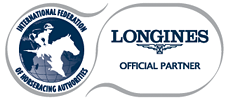FBI investigations into irregularities with betting on horseracing have lead to the prosecution of 4 betting websites and the discovery of organised crime.
Organised crime seems to have taken advantage of a fragmented regulation of betting on horseracing in the US. Although betting regulation is organised per state, the pari-mutuel pools are allowed to take bets from other states, or even off-shore. In order to attract these bets, rebates are even given to outer state betting operators.
Our US member NTRA already pointed at the negative impact this rebating has had on the purses (prize winnings for the horse owners). A part of the rebates were passed on to the bettors, which lead to bettors from the racing state to place bets on websites in other states to profit the rebate. The purses, based on the rebated values, went down even when total handle (money bet) went up.
It seems that rebating now also has caused a problem of money laundering and organised crime. This is because the bets places in other states and off-shore are not controlled in the same manner as in the racing state itself. This has apparently tempted organised crime to bet outside the racing state with large sums, while trying to influence the course of the race through doping.
Naturally, the NTRA is concerned about this and has called upon the regulatory authorities to increase their control on pool betting. Their press statement is below.
January 15, 2005
NTRA COMMISSIONER CALLS FOR INCREASED VIGILANCE, SECURITY
National Thoroughbred Racing Association Commissioner D.G. Van Clief, Jr., today called upon U.S. racetracks, racing commissions and horsemen’s organizations to accelerate implementation of recommendations that called for increased regulatory oversight of participants in U.S. pari-mutuel wagering pools – particularly Secondary Pari-Mutuel Operations (SPMOs) such as offshore and Native American sites that may be under-regulated compared to U.S. domestic track operators.
Van Clief also urged NTRA member associations to increase their diligence in applying recommended security measures and business practices in connection with racetrack backstretch operations and post-race drug testing for horses.
Van Clief’s comments were made in the wake of federal indictments against 17 individuals who are alleged to have been involved in a fraudulent wagering scheme that allegedly involved the administration of bicarbonate of soda to a racehorse (a process known as milkshaking) at New York’s Aqueduct racetrack to improve the animal’s racing performance. The wagers are alleged to have flowed through several SPMOs.
“We call on each and every member of our industry to enforce existing standards and security protocols to retain the integrity of our competition,” said Van Clief. “Only by consistent application of security protocols can we prevent the pari-mutuel industry from being victimized,” said Van Clief. “We can begin immediately by holding secondary pari-mutuel organizations to the same standards that licensed, regulated U.S. pari-mutuel operations are held, standards recommended by the NTRA Wagering Systems Task Force and endorsed unanimously by the NTRA Board of Directors last summer.
“Until such time that we can assure our customers that these operations adhere to those standards – including disclosing their ownership and allowing U.S. host tracks full access to wagering data for security purposes – it is not in the best interest of U.S. racetracks to allow these operations access to co-mingled pools.
“NTRA and its member horsemen’s groups, the THA, TOC and the HBPA, unanimously endorse the actions of the Southern California racetracks – including Del Mar, Santa Anita Park and Hollywood Park – that in recent months have increased security and testing” Van Clief said. “We call upon state regulators and horsemen nationwide to bring all their leverage to bear to achieve knowledge of who is betting into our pool, hasten the adoption of uniform medication standards and ensure higher levels of security and enforcement.”
The NTRA Wagering Systems Task Force, which was formed in January of 2004 to examine the effects of recent industry handle trends on overall revenue, issued a series of recommendations last July, including:
“Tracks, horsemen's associations, and racing commissions should diligently monitor all wagers allowed into their pari-mutuel pools by requiring and reviewing relevant information from tote companies and wagering sites. This information should be aggregated by an industry-wide, national wagering security organization (e.g., the National Office of Wagering Security called for by the [Wagering Technology Working Group] WTWG report in 2003). A refusal to provide the information necessary to ensure integrity of the system could affect the willingness of industry members to permit access to their own pari-mutuel pools.”
“Tracks, horsemen's associations, and racing commissions should require an adequate level of disclosure as well as regulatory and appropriate industry access for international and Native American gaming sites and for all domestic wagering (e.g., ownership, tax status, customer domicile, etc.).”
The NTRA is part of a 25-member Racing Medication and Testing Consortium, which includes numerous horsemen’s representatives. The Consortium has publicly condemned the use of ”milkshakes.”
| 


